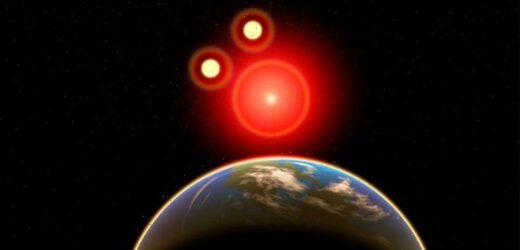European Space Observatory discusses ‘Stranger Exoplanets’
We use your sign-up to provide content in ways you’ve consented to and to improve our understanding of you. This may include adverts from us and 3rd parties based on our understanding. You can unsubscribe at any time. More info
For years, scientists have searched far and wide for any evidence of life other than on Earth. Planets like Mars have often offered hope in the form of microorganisms, things such as methanogens. Special attention was paid to the Red Planet in 2019, especially when the Curiosity rover discovered traces of methane in the atmosphere.
But on further investigation, nothing turned up.
Then, the breakthrough discovery of the presence of phosphine on Venus this year hinted that there must be life somewhere on the planet in order for the toxic gas to be produced.
But still, nothing.
Astronomers have generally played it safe when looking for life on other planets.


They scout out Earth-sized worlds, with Earth-like surface temperatures, and Earth-life atmospheres.
Now, however, things might change.
A team of researchers from the University of Cambridge have identified a new class of habitable planets that could change the game completely.
Dubbed “Hycean” planets — meaning hot, ocean-covered worlds with hydrogen-rich atmospheres — the newly identified exoplanets are far greater in number and easier to spot then Earth-like planets.
JUST IN: Power outage warning: ‘Big solar flare heading to Earth’

More importantly, researchers say specifically hunting for Hycean planets could lead to us discovering biosignatures of life outside our Solar System within the next two or three years.
Dr Nikku Madhusudhan from Cambridge’s Institute of Astronomy, told BBC Science Focus magazine that he believes researchers have opened a huge window of opportunity at finding new life.
He said: “Hycean planets open a whole new avenue in our search for life elsewhere.
“Essentially, when we’ve been looking for these various molecular signatures, we have been focusing on planets similar to Earth, which is a reasonable place to start.
DON’T MISS
NIPAH WARNING: Delta-variant of virus could kill 50% [REPORT]
Solar flare STRIKES Earth: Northern Lights visible across world [ANALYSIS]
Cancer breakthrough as ‘amazing’ new treatment destroys tumours [INSIGHT]


“But we think Hycean planets offer a better chance of finding several trace biosignatures.”
The planets can be up to 2.6 times larger than Earth, and can have atmospheric temperatures as high as 200ºC.
But their oceanic conditions could be similar to Earth’s, and so could potentially harbour microbial life.
So far, a significant portion of the exoplanets discovered fall into this category.

The larger sizes, higher surface temperatures and hydrogen-rich atmospheres of Hycean planets also make their atmospheric signatures much easier to detect than Earth-like planets.
Astronomers, when searching for signs of life on other plants, look at so-called biosignatures such as oxygen, ozone, methane and nitrous oxide, which are all present on Earth.
There are also a number of other biomarkers, however.
Things like methyl chloride and dimethyl sulphide could suggest the existence of life on planets with hydrogen-rich atmospheres where oxygen and ozone may not be as abundant.

Dr Madhusudhan said: “A biosignature detection would transform our understanding of life in the Universe.
“We need to be open about where we expect to find life and what form that life could take, as nature continues to surprise us in often unimaginable ways.”
Already, the team has identified a number of Hycean planets between 35 and 150 light-years.
These are their prime targets for the next generation of space telescopes, like the James Webb Space Telescope (JWST) due to be launched later this year.
You can subscribe to BBC Science Focus magazine here.
You can subscribe to BBC Science Focus magazine here.
Source: Read Full Article


